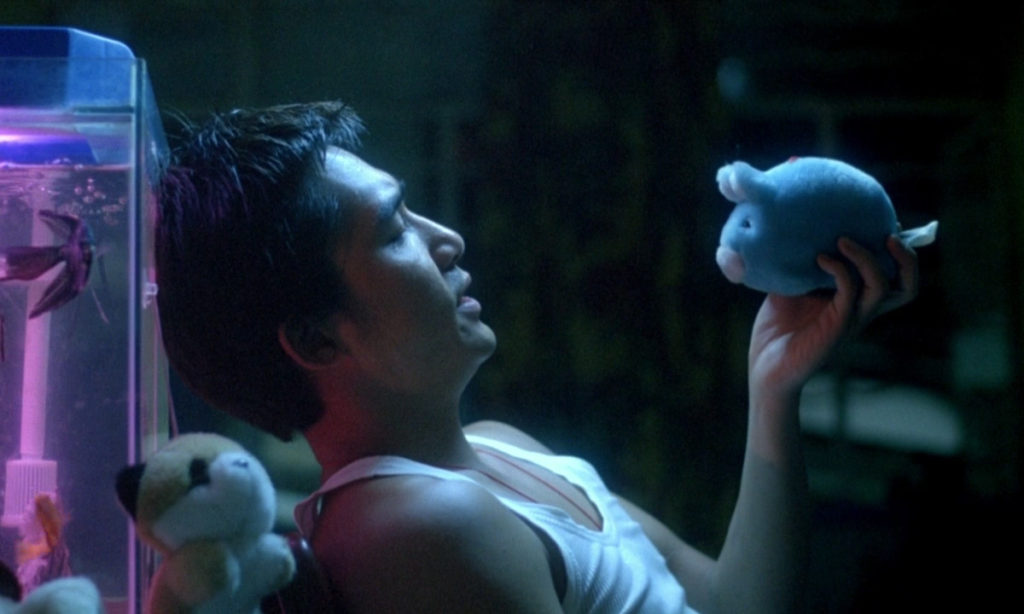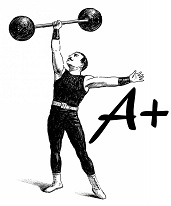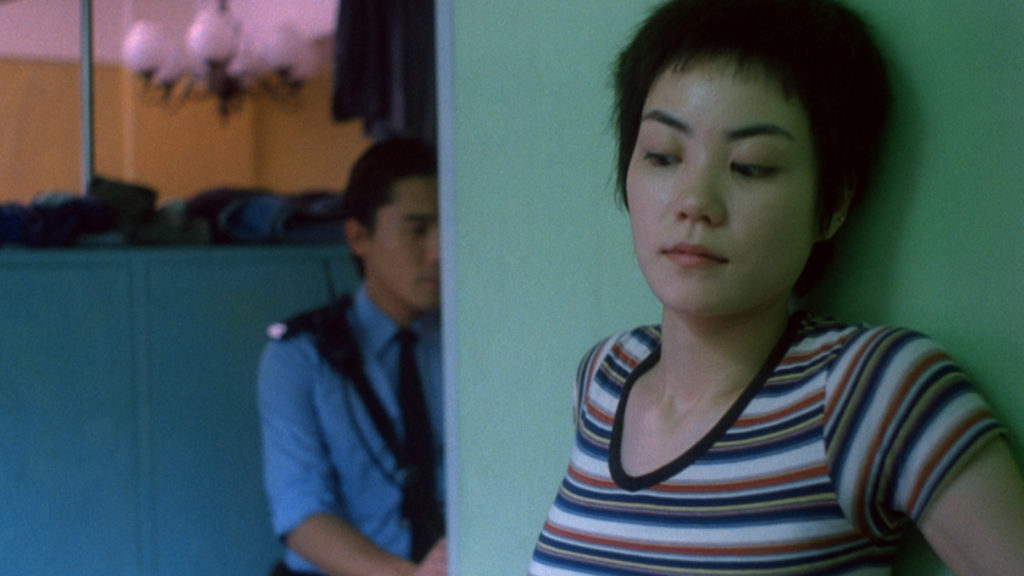“Chungking Express” (1994) is a comprised of two touching tales that happen just beside on another—both dealing with love, heartbreak, and hope. On paper, both stories have a standard quirky rom-com premise, but in the hands of acclaimed director Wong Kar-Wai, they are injected with a unique and heartfelt heaviness. Wong Kar-Wai shows a shocking understanding of love, longing, and the human condition that sets this film apart from any romance you’ve seen before.
The film follows two heartbroken Hong Kong policemen. Both are clinging onto old flames, lingering in the past when their ex-lovers have clearly moved on with their lives. The first story features Takeshi Kaneshiro as Cop 223, as he reluctantly comes to terms with the end of his previous relationship before resolving to fall in love with the next woman he sees. Enter Brigitte Lin as the mysterious Blonde-Wigged Woman—an aloof underground figure who remains unnamed for the duration of the film.
This smoothly transitions into the second story of the film, following Faye (Faye Wong), a young woman who works at her cousin’s food stall and falls for regular customer Cop 663 (Tony Chiu-Wai Leung). Cop 663 becomes deeply dejected after his lover leaves him but continues to visit the food stall where they used to eat. After secretly gaining access to his apartment, Faye begins regularly sneaking in while Cop 663 is away, fixing things up, playfully exploring his belongings and generally lifting everything out of its miserable state.
Though the stories are two sides of the same wistful coin, where they diverge the most is in their tone. The first story is more tense and sombre, with a lingering sense of urgency and an overall theme of expiration. Meanwhile, the second story is patient and has a hopeful warmth, revolving around change. Wong Kar-wai uses the same tools for different means to set these tales apart.
From the outset, Wong Kar-Wai paints the city as bustling and alive, promising many stories all playing out at once, just missing each other. The audience just happens to have been thrown into a lethal game of cat and mouse as the Blonde-Wigged Woman’s drug smuggling operation goes sour. The smoky narrow passages and the feeling of a slow pursuit taking place all feel very noir. Here, Wong Kar-Wai and cinematographer Christopher Doyle employ their signature step-printing technique to jar the audience, stunting all movement between each frame. This builds a sense of panic and disorientation, almost as if time is accelerating out of control. It is then heightened as a hectic chase erupts, seeing Cop 223 going after a criminal across a busy street.

Step-printing returns is the second story in very different scenarios, being used on passers-by as Cop 663 stalls for time to avoid opening a final letter from his ex-girlfriend. It’s is used once more as he anxiously waits for the arrival of a date who doesn’t appear to be showing up. Both examples here create the sense of each moment being stretched, achieving the opposite effect to that in the first story. This small distinction sums up the difference in approaches between the two segments, which are like day and night in a in some regards despite having many recurring themes.
Whilst the contrast between the two segments of the film is often to its strength, it also gives way to what is its only real flaw. The uneven lengths and slowing of pace after the transition will throw off viewers expecting more consistency. The more leisurely later chunk may feel padded out and tiresome by its end in, especially after the more compact first story. Though, in repeat viewings when the plot is already known, it is easier to marinate in the languid story of Faye and Cop 663.
What both segments of the film have in common is the quality of the performances and the chemistry between both pairs of leads. Brigitte Lin perfectly embodies a taciturn femme fatale and commands the action scenes, but also manages to convey a humanity beneath the archetype. This character perfectly contrasts Takeshi Kaneshiro’s emotionally charged take on the comically downhearted Cop 223. Kaneshiro manages to juggle both sorrow and levity to create a character that is just impossible not to like. Both are larger than life characters who suit the higher-octane first story.
The more grounded performance of Tony Chiu-Wai Leung anchors moments that could’ve come across as melodramatic from another actor. Such moments include scenes where Cop 663 speaks to the inanimate objects in his apartment, projecting his feelings of loneliness and grief from his lost love onto them. This realism complements Faye Wong’s embodiment of a dreamer, who’s presence brings light into the film the same way that her character brings light back into Cop 663’s life.
Overall, it is the emotive visuals that are key to the magic of “Chungking Express.” The framing of characters in their moments of solitude and the hazy look of each scene bring emotions to the forefront and build a sense of surrealism. There are some truly unforgettable shots that convey so much melancholy. Wong Kar-Wai uses his ethereal lens to capture the fantasy behind falling in love as well as the desperation in chasing the concept of love itself to escape loneliness.
“Chungking Express” is a bittersweet portrait of the hopeless romantic and is soaked with sentimentality. The plot is not the main attraction—it is Wong Kar-Wai’s command of mood and earnest depiction of such abstract emotions that make this one of the most compelling films in the romance genre. There is no better portrayal of the cycle of love, loss, and longing—and the hope that reignites it.


